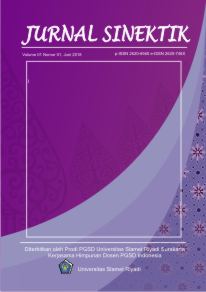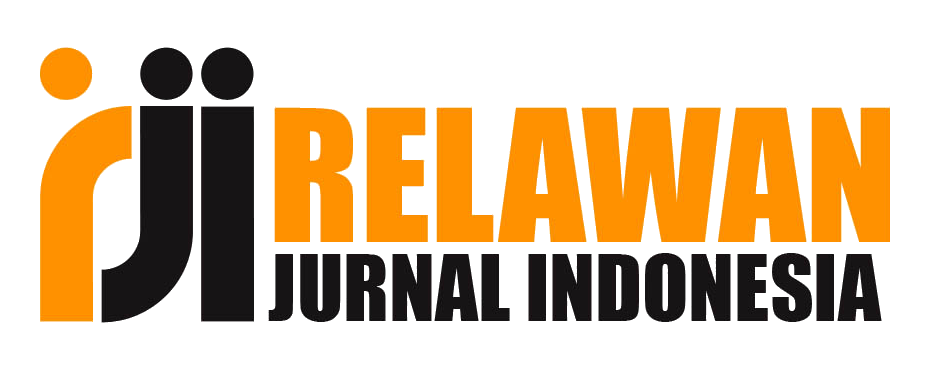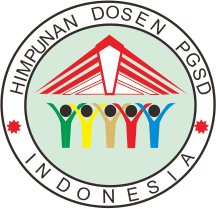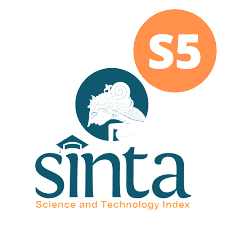ANALISIS PELAKSANAAN PEMBELAJARAN DARING PADA PESERTA DIDIK KELAS V DI SD NEGERI CEMORO KABUPATEN BOYOLALI
DOI:
https://doi.org/10.33061/js.v4i2.6659Keywords:
implementation, online learning, studentsAbstract
This research aims to analyze about the implementation, constraints, and efforts of teachersto optimize online learning of students of class Vof Cemoro State Elementary School Boyolali District 2020/2021. The research method used is qualitative research. The results of this study are: 1) the implementation of online learning teachers do learning planning by making   RPP, teaching materials, and videos sent to   WhatsApp groups. Then teachers use WhatsApp to communicate with learners and parents to find out the learning development of learners. This app is used.   Providing evaluation to measure the understanding of learners on online learning with Whatsapp,2) Online learning constraints are that learners cannot follow learning optimally due to the absence of unpreparednessand lack of supervision, assistance from parents, learners do not have smartphones    as well as internet packages to follow online learning, 3) Teacher efforts to optimize online learning are:create  WhatsApp groups of learners, co-ordinate and coordinate with parents,  anddo  home visit  settwice a week.
References
Anugrahana, A. (2020). Hambatan, Solusi dan Harapan: Pembelajaran Daring Selama Masa Pandemi Covid-19 Oleh Guru Sekolah Dasar. Scholaria: Jurnal Pendidikan Dan Kebudayaan, 10(3), 282–289. https://doi.org/10.24246/j.js.2020.v10.i3.p282-289
Andi, Miladiyah. (2017). Pemanfaatan Whatsapp Messenger Info Dalam Pemberian Informasi dan Peningkatan Kinerja Pada Sub Bagian Program Pemerintah Provinsi Sulawesi Selatan. Tesis, 1-192.
Cepi, Riyana. (2019). Produksi Bahan Pembelajaran Berbasis Online. Universitas Terbuka.
Farida, J. (2019). Perencanaan Pembelajaran. UIN Sumatera Utara. 1–141.
Hamdan, H.B., & Delila, S.B. (2020). Penggunaan Video Tutorial Untuk Mendukung Pembelajaran Daring Di Masa Pandemi Virus Corona. Muallimuna : Jurnal Madrasah Ibtidaiyah, 5(2), 21.
https://doi.org/10.31602/muallimuna.v5i2.2950
Hardianto, E. (2012). Karateristik Pendidik Dan Peserta Didik Dalam Pembelajaran Online. Majalah Ilmiah Pembelajaran, 8(2), 1–10.
Husna, Amalia. (2016). Implementasi Home Visit dalam Upaya Meningkatkan Pembelajaran PAI di SDIT al-Azhar Kediri. Jurnal Didaktika Religia, 4(1), 77–106. https://doi.org/10.30762/didaktika.v4.i1.p77-106.2016
Henry, Aditia. R. (2020). Kendala Pembelajaran Daring Guru Sekolah Dasar di Kabupaten Banjarnegara. Jurnal Universitas PGRI Yogyakarta, 7(2), 297-302. https://journal.upy.ac.id/index.php/es/article/download/768/628
Imania, K. A., & Bariah, S. K. (2019). Rancangan Pengembangan Instrumen Penilaian Pembelajaran Berbasis Daring. Jurnal Petik, 5(1), 31–47. https://doi.org/10.31980/jpetik.v5i1.445
Kementrian Pendidikan dan Kebudayaan Republik Indonesia. 2020. Surat edaran No.4 Tahun 2020 tentang Pelaksanaan Kebijakan Pendidikan dalam Masa darurat Penyebaran Corona Virus Disease (Covid-19). Jakarta: Kementrian Pendidikan dan Kebudayaan.
Moleong. (2016). Metodologi penelitian kualitatif Edisi Revisi. Bandung: PT. Remaja Rosdakarya.
Sugiyono. (2017). Metode Penelitian Kuantitatif, Kualitatif, dan R&D. Bandung: Alfabeta.
Suryadi, E., Ginanjar, M. H., & Priyatna, M. (2018). Penggunaan Sosial Media Whatsapp Pengaruhnya Terhadap Disiplin Belajar Peserta Didik Pada Mata Pelajaran Pendidikan Agama Islam (Studi Kasus Di Smk Analis Kimia Ykpi Bogor). Edukasi Islami : Jurnal Pendidikan Islam, 7(01), 1. https://doi.org/10.30868/ei.v7i01.211
Downloads
Published
How to Cite
Issue
Section
License
Copyright (c) 2021 Jurnal Sinektik

This work is licensed under a Creative Commons Attribution-NonCommercial 4.0 International License.
Authors who publish this journal agree to the following terms:
- Authors retain copyright and grant the journal right of first publication with the work simultaneously licensed under a Creative Commons Attribution License that allows others to share the work with an acknowledgement of the work's authorship and initial publication in this journal.
- Authors can separately make additional contractual arrangements for non-exclusive distribution published by the journal (e.g., publish it in a book), with an acknowledgement of its initial publication in this journal.
- Authors are allowed and encouraged to send their work via online (e.g., in the institutional repositories or their website) after published by the journal.














